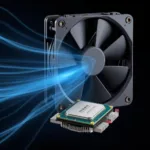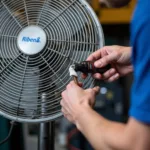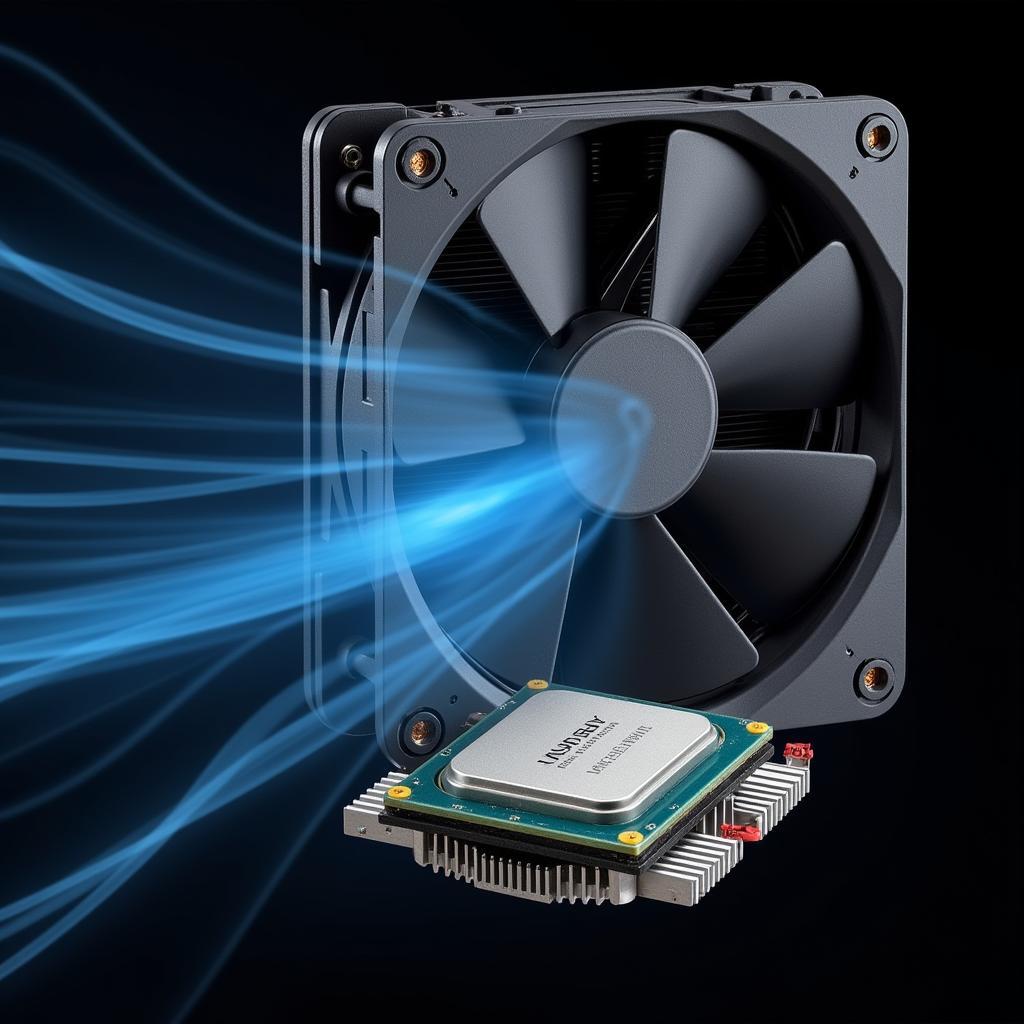Keeping your kitchen fan clean is crucial for maintaining a healthy and hygienic environment. A dirty fan can not only spread dust and allergens but also affect the efficiency of your ventilation system. In this comprehensive guide, we’ll walk you through the entire process of Kitchen Fan Cleaning, from basic cleaning techniques to advanced maintenance tips.
Why is Kitchen Fan Cleaning Important?
Your kitchen fan plays a vital role in removing cooking odors, grease, and smoke from the air. Over time, these particles accumulate on the fan blades, motor, and other components, leading to several problems:
- Reduced Efficiency: A buildup of grease and dust can restrict airflow, making your fan less effective at removing odors and smoke.
- Fire Hazard: Grease buildup is highly flammable and can easily ignite, posing a fire hazard.
- Health Risks: A dirty fan can spread dust, allergens, and bacteria into the air, affecting the health of your family.
- Noise Pollution: A clogged fan can become noisy and distracting.
What You’ll Need to Clean Your Kitchen Fan
Before you begin cleaning, gather the following supplies:
- Mild dish soap: For cleaning the fan blades and other surfaces.
- Warm water: For rinsing and cleaning.
- Microfiber cloth or sponge: For wiping down the fan.
- Soft-bristled brush: For reaching hard-to-clean areas.
- Vacuum cleaner with a crevice attachment: For removing dust and debris.
- Optional: A grease-cutting cleaning solution or degreaser, vinegar, baking soda, and a ladder (for high ceilings).
Step-by-Step Guide to Cleaning Your Kitchen Fan
1. Disconnect Power
Before you begin cleaning, always disconnect the power supply to your fan to prevent electrical shock.
2. Remove the Fan Cover and Blades
Most kitchen fans have a cover that can be easily removed. Use a screwdriver to loosen any screws holding the cover in place. Once the cover is removed, carefully remove the fan blades.
3. Clean the Fan Blades
- Hand Cleaning: If the fan blades are not excessively dirty, you can simply wash them by hand. Use warm water and mild dish soap to create a soapy solution. Gently scrub the blades with a soft-bristled brush, ensuring you remove all grease and dirt. Rinse the blades thoroughly with clean water and dry them completely.
- Dishwasher Cleaning: Some fan blades are dishwasher safe. Check the manufacturer’s instructions before placing them in the dishwasher. Use a gentle detergent and a low-heat setting.
4. Clean the Fan Motor and Housing
- Vacuuming: Use a vacuum cleaner with a crevice attachment to remove dust and debris from the fan motor and housing.
- Wiping: Use a damp cloth to wipe down the motor and housing. Be careful not to get water on the electrical components.
- Deep Cleaning: For a deep clean, you can use a degreaser or a mixture of vinegar and baking soda. Apply the solution to the motor and housing, let it sit for a few minutes, and then wipe clean with a damp cloth.
5. Clean the Fan Cover
- Hand Cleaning: Use warm water and mild dish soap to wash the fan cover. Gently scrub it with a soft-bristled brush to remove any grease or dirt. Rinse the cover thoroughly and dry it completely.
- Dishwasher Cleaning: Some fan covers are dishwasher safe. Check the manufacturer’s instructions before placing it in the dishwasher. Use a gentle detergent and a low-heat setting.
6. Reassemble the Fan
Once all the parts are clean and dry, reassemble the fan in reverse order. Secure the screws holding the cover in place and reconnect the power supply.
Expert Tips for Cleaning Your Kitchen Fan
“Cleaning your kitchen fan regularly is essential for maintaining a healthy and hygienic kitchen environment,” says John Smith, a certified kitchen appliance technician. “Here are some additional tips to ensure you’re getting the best results:”
- Use a cleaning solution: To tackle stubborn grease buildup, consider using a grease-cutting cleaning solution or degreaser. Always follow the manufacturer’s instructions and wear protective gloves when handling these products.
- Clean the air filter: Regularly clean or replace the air filter in your kitchen fan. A dirty filter can restrict airflow and make the fan less effective.
- Check for damage: During cleaning, check for any damage to the fan blades, motor, or housing. Replace any damaged parts to ensure the fan operates safely and efficiently.
FAQs About Kitchen Fan Cleaning
Q: How often should I clean my kitchen fan?
A: It’s recommended to clean your kitchen fan every 3-4 months, or more frequently if you cook often.
Q: Can I use bleach to clean my kitchen fan?
A: Avoid using bleach on your kitchen fan, as it can damage the plastic and metal parts. Stick to mild dish soap or a grease-cutting cleaning solution.
Q: What if my fan is making a strange noise?
A: A strange noise could indicate a loose part, a clogged motor, or a worn-out bearing. If you’re not comfortable troubleshooting the problem yourself, contact a qualified appliance repair technician.
Q: Can I clean my kitchen fan while it’s still plugged in?
A: No, always disconnect the power supply to your fan before cleaning to prevent electrical shock.
Maintaining a Clean Kitchen Fan
To keep your kitchen fan clean and efficient, consider these maintenance tips:
- Wipe down the fan after each use: This will prevent grease and dirt from building up over time.
- Clean the air filter regularly: Replace or clean the air filter according to the manufacturer’s instructions.
- Use a fan cover: A fan cover can help to protect the blades and motor from grease and dust.
- Schedule regular cleanings: Set a reminder on your calendar to clean your kitchen fan every 3-4 months.
Conclusion
Keeping your kitchen fan clean is essential for maintaining a healthy and hygienic kitchen environment. By following these simple steps, you can ensure your fan operates efficiently and safely for years to come. Remember to clean your fan regularly, check for damage, and address any strange noises promptly.
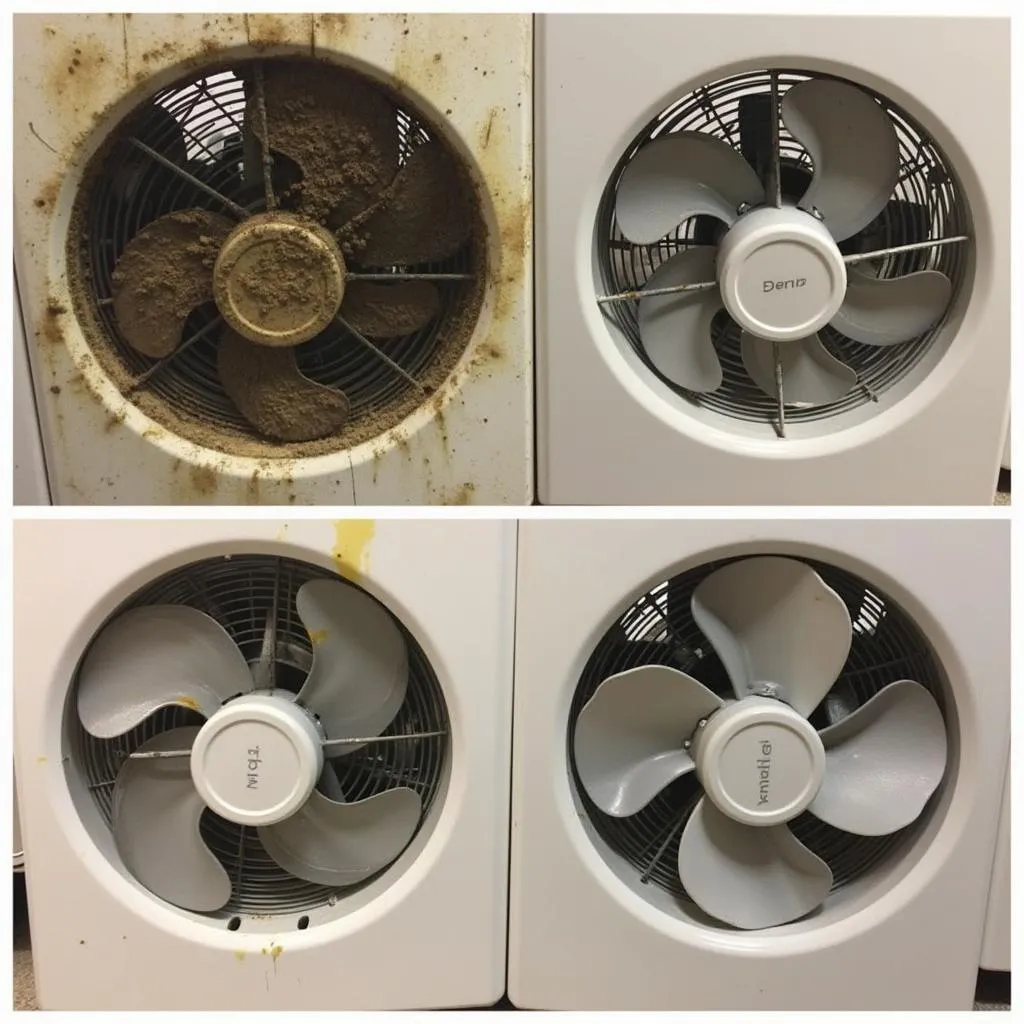 Before and After Kitchen Fan Cleaning
Before and After Kitchen Fan Cleaning
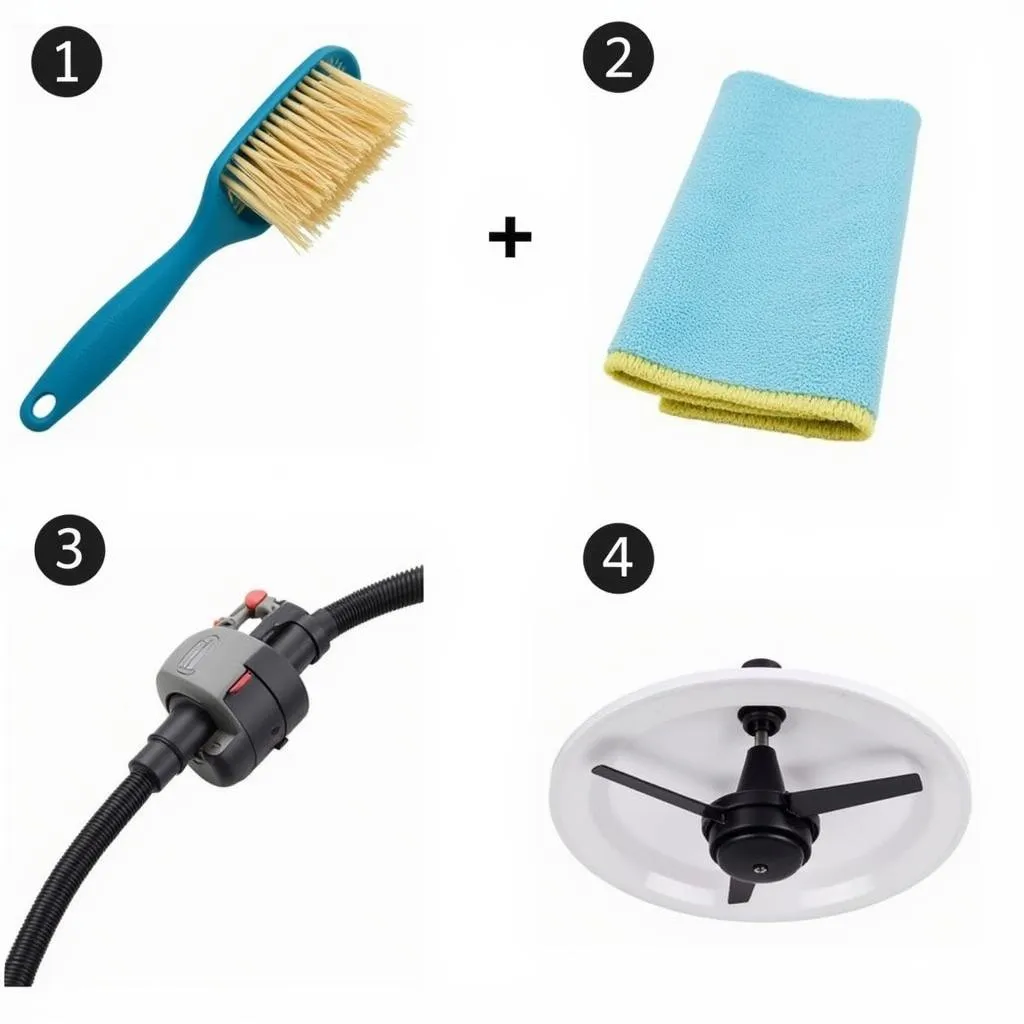 Kitchen Fan Cleaning Tools
Kitchen Fan Cleaning Tools
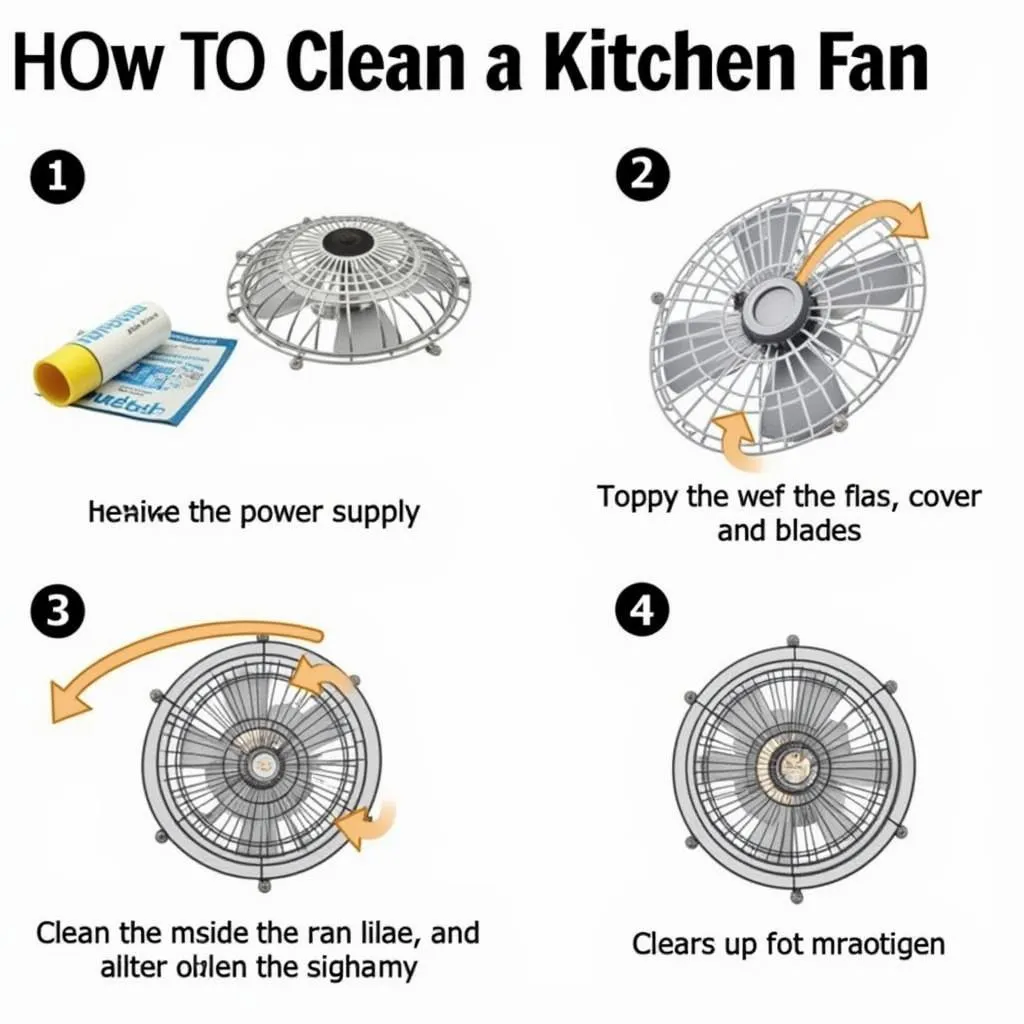 Kitchen Fan Cleaning Process
Kitchen Fan Cleaning Process
For any further assistance or expert advice, please contact us at [email protected] or call us at 0903426737. Our team of experts is always ready to help you maintain a clean and healthy kitchen environment.
